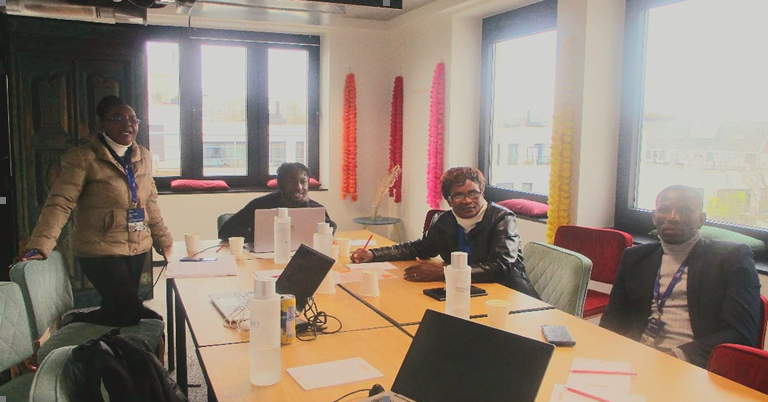The Gr2A Consortium Represented at the EU Intra-Africa Mobility Project Coordinators Meeting
In a landmark initiative aimed at bolstering collaboration and mobility within African higher education institutions, the European Union (EU) hosted a significant meeting from the 20th to the 25th of March 2024 in Brussels, Belgium. The event titled ” the EU Intra-Africa Mobility Academic Mobility Coordinators Kick-Off Meeting,” brought together key stakeholders, policymakers, and academic representatives from across the African continent to deliberate on strategies for enhancing the skills and competencies of university staff and students in the area of climate change and mitigation through academic mobility.
The gathering served as a platform for constructive dialogue and exchange of ideas, reflecting the shared commitment of the EU and African nations to promote higher education in Africa by increasing the availability of trained and qualified manpower through mobility between African higher education institutions. Represented at the workshop were 65 African universities, representing 15 African countries, whose Intra-mobility projects were selected from a total of 127 project proposals submitted to the EU. The Grow Green project (Gr2A) project consortium was represented by project coordinators from the Copperbelt University in Zambia, Rhodes University in South Africa, the National University of Science and Technology in Zimbabwe, Namibia University of Science and Technology in Namibia, the University of Eswatini in Eswatini and the University of Turku in Finland. The Gr2A is a project that aims to equip PhD students, Masters students, trainees and staff from the Southern African region with competencies in green computing technologies.
Throughout the three-day event, participants engaged in comprehensive discussions on various aspects of the intra-Africa mobility in higher education programme, including contractual obligations of the project, management of international mobility and the monitoring and evaluation of such projects. Emphasis was placed on identifying challenges, sharing best practices, and exploring innovative solutions to promote seamless mobility and integration within higher education institutions on the African continent on climate change-related issues. In addition to formal sessions, the meeting provided valuable opportunities for networking and collaboration, allowing participants to forge partnerships, exchange expertise, and explore potential avenues for cooperation. The spirit of solidarity and partnership permeated the event, reflecting a shared vision for a more interconnected higher education in Africa on climate change mitigation.

From L-R: Prof. Nomusa Dlodlo (Rhodes University), Mr David Ruwodo (Turku University), Dr. Sibonile Moyo (NUST Zimbabwe), Dr. Nikodemus Angula (NUST Namibia)
As the meeting concluded, participants reaffirmed their commitment to advancing intra-Africa mobility and pledged to translate discussions into concrete actions and policies. The gathering in Brussels served as a testament to the EU’s unwavering support for Africa’s development agenda and its commitment to fostering collaboration and partnership with the continent. The EU Intra-Africa Mobility Project Meeting in Brussels marked a significant milestone in the journey.

